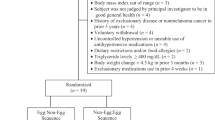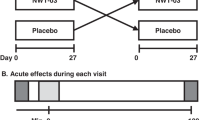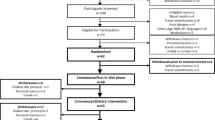Abstract
Background: Plasma cholesteryl ester transfer activity influences the distribution of cholesterol among plasma lipoproteins and changes in its activities may influence the response of plasma lipoprotein cholesterol levels to increased cholesterol intake in the form of eggs.
Objective: The aim of the study was to determine the effect of increased egg intake on plasma newly synthesized cholesteryl ester transfer (NCET) activity and plasma lipids and lipoprotein levels in free-living men and women.
Design: The study was longitudinal and included a 12 d intervention arm and a similar control period immediately prior to the intervention to account for any changes in variables with time.
Subjects: Thirty two healthy subjects aged 20–57 y and consuming self-selected diets were recruited. Twelve men and 14 women were entered into the intervention arm of the study. Twelve of these subjects and six others were in the control group.
Interventions: Subjects who participated in the intervention phase received one additional egg per day.
Results: Plasma NCET activity decreased significantly (P=0.05) in the 26 subjects who consumed an extra egg, mainly due to a significant (P=0.02) decrease (−13.4%) in the activity in the women. Plasma cholesterol and apolipoprotein B-containing lipoprotein cholesterol increased significantly (P<0.05) in the intervention group and in men (P=0.02) but not in women. Age was correlated significantly (r=0.519, P<0.01) with the change in plasma NCET activity in all subjects and in men (r=−0.644, P<0.05). The decrease in plasma NCET activity was significantly (P=0.02) less in the lowest tertile compared with other tertiles of self-reported habitual dietary cholesterol intake independent of age and gender.
Conclusions: These data suggest that an increase in dietary cholesterol reduces plasma NCET activity particularly in women and older men and individuals with higher habitual intakes of cholesterol. Furthermore, a reduction in plasma NCET activity may tend to limit the increase in apoB-containing lipoprotein cholesterol in women during increased egg consumption.
Sponsorship: This study was supported by the Nye Special Lipid Fund.
This is a preview of subscription content, access via your institution
Access options
Subscribe to this journal
Receive 12 print issues and online access
$259.00 per year
only $21.58 per issue
Buy this article
- Purchase on Springer Link
- Instant access to full article PDF
Prices may be subject to local taxes which are calculated during checkout
Similar content being viewed by others
Author information
Authors and Affiliations
Rights and permissions
About this article
Cite this article
Sutherland, W., Ball, M. & Walker, H. The effect of increased egg consumption on plasma cholesteryl ester transfer activity in healthy subjects. Eur J Clin Nutr 51, 172–176 (1997). https://doi.org/10.1038/sj.ejcn.1600379
Received:
Revised:
Accepted:
Issue Date:
DOI: https://doi.org/10.1038/sj.ejcn.1600379



